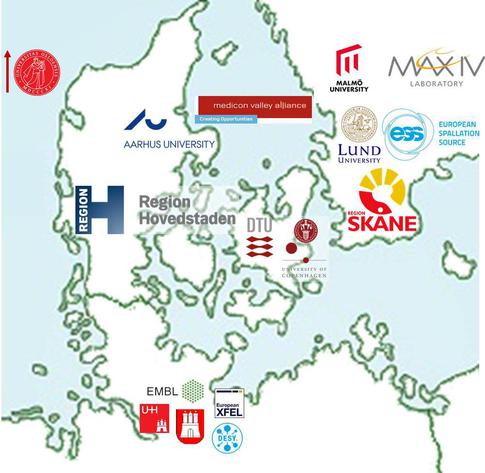XFEL: Hanseatic research network funded
Hanseatic research network funded
European XFEL is part of the new German-Scandinavian cross-border research network project ‘Hanseatic League of Science (HALOS)’ that has been awarded 3.6 million Euro by the European Regional Development Fund INTERREG. The project aims to facilitate long-term exchange and collaboration across the region in the life sciences. Coordinated by the University of Lund in Sweden, the project brings together experts from research facilities and industry partners from across Denmark, Sweden, Norway, and Northern Germany. Alongside European XFEL, the large scale research infrastructures DESY in Germany and MAX IV and the European Spallation Source (ESS) in Sweden are also partners. This collaboration of world-leading research centres is expected to open up cutting-edge experimental possibilities to the wider life-science community, thereby prompting innovative ideas and developments. Other participants in the Hamburg area include EMBL, Universität Hamburg, and the City of Hamburg.

HALOS will bring together academic and industry partner from across the region.
As part of the three-year project, an exchange programme will be established comprising seminars and workshops to facilitate the collaboration and communication of members across the region, as well as funding for ‘short seed projects’ where junior scientists will have the chance to stay at partner organisations. At European XFEL, for instance, a number of Ph.D. students will stay for up to six months to gain new experience or carry out experiments that are not possible at their home institutes.
Read also the press release about HALOS from the University of Lund
